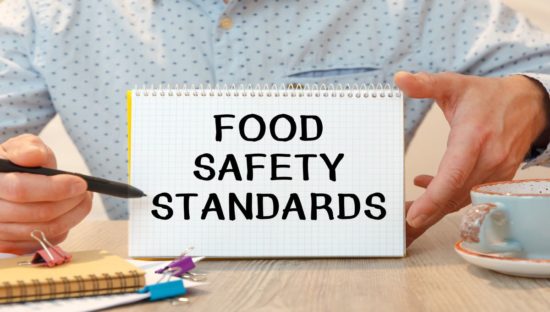Investigations into an outbreak in Sweden have uncovered truffle samples positive for Listeria.
After receiving results from samples taken at the Coco & Carmen restaurant, the Environmental Administration in Stockholm said six truffle samples, which were delivered and frozen in July, showed high levels of Listeria.
However, since the product is prepared on the premises, the agency cannot, with certainty, say they are the source of infection.
A total of 15 patients with Listeria detected in their blood have been confirmed. They visited the restaurant from Sept. 23 to 27.
Food and patient samples compared
About 150 people went to hospitals in Stockholm. Approximately 450 guests who visited the restaurant on the days in question have received information from Stockholm’s infection control unit.
Comparative analyses between the type of Listeria in sick people and positive samples is ongoing. The Swedish Food Agency (Livsmedelsverket) and the Public Health Agency of Sweden (Folkhälsomyndigheten) are carrying out this work, which is expected to be completed in about a month.
Previous test results detected Listeria in 15 food samples and four environmental samples. Most foods had low levels of the pathogen.
The Environmental Administration took 50 food and 16 environmental samples in connection with the Listeria outbreak between Sept. 30 and Oct. 9. Seven environmental samples were taken after the company had cleaned the premises.
Investigators did not find any shortcomings in the company’s routines that could have led to Listeria growth. Restaurant owners have carried out extensive cleaning, discarded the food stored on Sept. 30, purchased new food and some new equipment, such as cutting boards.
The Environmental Administration and Swedish Food Agency have sent information about positive results and the outbreak to other countries via a Rapid Alert System for Food and Feed (RASFF) notification.
About Listeria infections
Food contaminated with Listeria monocytogenes may not look, smell or taste spoiled but can still cause serious and sometimes life-threatening infections. Anyone who has eaten at the restaurant and developed symptoms of Listeria infection should seek medical treatment and tell their doctors about the possible Listeria exposure.
Also, anyone who ate at the restaurant should monitor themselves for symptoms during the coming weeks because it can take up to 70 days after exposure to Listeria for symptoms of listeriosis to develop.
Symptoms of Listeria infection can include vomiting, nausea, persistent fever, muscle aches, severe headache, and neck stiffness. Specific laboratory tests are required to diagnose Listeria infections, which can mimic other illnesses.
Pregnant women, the elderly, young children, and people such as cancer patients who have weakened immune systems are particularly at risk of serious illnesses, life-threatening infections, other complications and death. Although infected pregnant women may experience only mild, flu-like symptoms, their infections can lead to premature delivery, infection of the newborn, or even stillbirth.
(To sign up for a free subscription to Food Safety News, click here)



